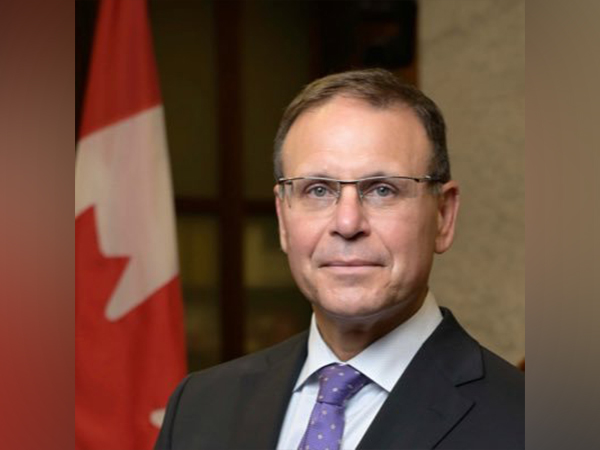COVID-19 experts in US discuss adolescence vaccination, anticoagulants
Jun 04, 2021

Washington [US], June 4 : US President Joe Biden's top medical adviser Dr Anthony Fauci and Director of the Centers for Disease Control and Prevention (CDC) Dr Rochelle Walensky on Thursday discussed America's response to COVID-19 in a White House press briefing giving insights about adolescence vaccination and anticoagulants.
Dr Anthony Fauci discussed selected COVID-19 therapeutics. The 'Selected Therapeutics' was broken up into three major components and it has three separate approaches: one, to target the virus itself. The other was to moderate an aberrant inflammatory response, moderating the host. And the other adjunctive therapies, such as anticoagulants.
He said that monoclonal antibodies, two of which -- the Regeneron combination and Eli Lilly combination -- have already been approved for Emergency Use Authorization (EUA).
As per him, a randomized placebo-controlled phase three trial of non-hospitalized patients with mild to moderate COVID-19 who are at high risk for the progression of their disease -- close to 600 people -- a single 500 milligram dose of the monoclonal antibody, sotrovimab -- again, by GSK and Vir -- reduced the risk of hospitalization or death by 85 percent, compared with the placebo.
"It is well-tolerated and there are no safety signals identified. And, importantly, in the test tube, this antibody retains activity against multiple variants. So, what we really have now are three options within the arena of monoclonal antibodies -- something that's important for physicians to know that there is an important option for treating people early to prevent them from going to the hospital," said Fauci.
"This has been granted an EUA, so it's available for use, and we encourage physicians to at least consider this possibility as part of your therapeutic armamentarium," added Fauci.
Meanwhile, Dr Walensky discussed adolescence vaccination. She said that a specific population that will join the tens of millions who have already been vaccinated is that of adolescents.
"Last month, FDA authorized and CDC recommended a safe and effective vaccine for COVID-19 that can be used in adolescents to prevent disease and hospitalization. I strongly encourage parents to get their teens vaccinated, as I did mine," said Walensky.
In the month leading up to the recommendations of the Pfizer COVID-19 vaccines for teens and adolescents 12 and older, CDC observed troubling data regarding the hospitalizations of adolescents with COVID-19.
More concerning was the number of adolescents admitted to the hospital who required treatment in the intensive care unit with mechanical ventilation.
She also informed that tomorrow CDC will publish a report on adolescence vaccination with more details over morbidity and mortality weekly report.
"And it is these findings within this publication -- one that demonstrates the level of severe disease, even among youth, that are preventable, that force us to redouble our motivation to get our adolescents and young adults vaccinated," said Walensky.
She also advised parents to consult healthcare provider, local department of public health, local pharmacist to clear their doubts regarding adolescence vaccination.
"And, of course, until teens are fully vaccinated, they should continue to wear masks and take precautions when around others who are not vaccinated, to protect themselves, their friends, family, and community," said CDC Director.
Meanwhile, CDC reported a little over 9,300 new cases of COVID-19. The seven-day average is about 15,600 cases per day. This represents a decrease of more than 30 per cent. It is a 94 per cent decrease from the peak of COVID-19 cases that US reported in January of this year.
The seven-day average of new hospital admissions is about 2,750. That is a decrease of 83 per cent in hospitalizations since January 9th of this year when we peaked at a seven-day average of almost 16,500 daily hospital admissions, said the CDC Director.
The seven-day average of daily deaths has also declined to a new low of 363 per day -- a decrease of more than 16 percent from the last week, informed Walensky.



















